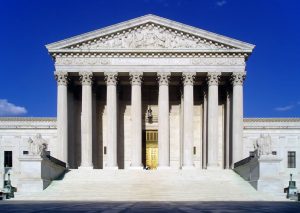 A ruling made by the U.S. Supreme Court on Monday may make it harder for dodgy patent lawsuits to be filed in friendly courts. The decision came from a legal battle between beverage flavoring company TC Heartland LLC and food and beverage company Kraft Heinz Co. Kraft started the battle when it filed a patent suit involving liquid water flavorings against Heartland, a subsidiary of Heartland Consumer Products Holdings, in Delaware federal court.
A ruling made by the U.S. Supreme Court on Monday may make it harder for dodgy patent lawsuits to be filed in friendly courts. The decision came from a legal battle between beverage flavoring company TC Heartland LLC and food and beverage company Kraft Heinz Co. Kraft started the battle when it filed a patent suit involving liquid water flavorings against Heartland, a subsidiary of Heartland Consumer Products Holdings, in Delaware federal court.
Heartland filed to transfer the case to its home base in Indiana, saying that it has no presence in Delaware and 98 percent of its sales are outside of that state. Last year, the appeals court denied the transfer. The Federal Circuit denied Heartland’s transfer by relying on a 1990 ruling that loosened the geographic limits on patent cases. Heartland argued to the Supreme Court that its own precedent from 1957 held that patent suits are governed by a specific law allowing suits only where defendants are incorporated.
Even though the lawsuit was not filed in Texas, the arguments in the case touched on the peculiar fact that more than 40 percent of all patent lawsuits are filed in East Texas. A single federal court district in rural East Texas has seen a steady flow of patent litigation because of its reputation for having rules and juries that favor plaintiffs bringing infringement suits. According to a study published in a Stanford Law School journal, 90 percent of those lawsuits are brought by “patent trolls,” individuals and companies that generate revenue by suing over patents instead of actually making products.
The decision tightened rules for where patent cases can be filed and upends 27 years of law governing patent infringement cases. Heartland said the ruling will limit the ability to “shop” for friendly courts. Kraft Senior Vice President Michael Mullen said the company was disappointed in the ruling.
The change could potentially dissuade some patent cases from being launched in the first place. It would potentially make it harder to extract lucrative settlements from businesses and easier for defendants to get cases dismissed. These patent cases have been a major irritant for tech giants like Apple, Samsung Electronics, Microsoft, and Alphabet Inc’s Google. These firms have been vocal about the need for legislation to curb patent suits.
